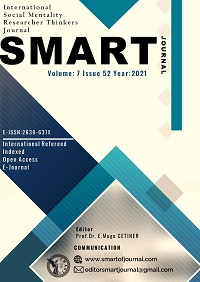Author :
Abstract
تتشابك العلاقة بين الحاكم والمحكوم في العالم الإسلامي بين مجموعة من المؤثرات؛ الفكرية والقانونية والأخلاقية، ويلعب الدين دوراً بارزاً جداً في محور المؤثرات الفكرية، نظراً لأن تأثيره مباشر وتلقائي بمعزل عن المؤثرات الأخرى، فالناس في عالمنا الإسلامي تستجيب للرسائل الدينية دون التفكير بموثوقية الشخص الذي يوجه تلك الرسائل أو صحة ما يقوله، اكتفاء بالتسليم المطلق لقدسية النص، ولو كان صاحب تلك الرسائل يعبث بتفسير النصوص أو يستخدم أسلوب اللعب بالألفاظ ودغدغة العواطف الدينية المجردة. وهذا يجعل من الضرورة بمكان دراسة أسباب الصراع بين الحاكم والمحكوم في عالمنا الإسلامي، نظراً لأن هذا الصراع يؤدي غالباً لترسيخ الدكتاتوريات أكثر فأكثر في العالم الإسلامي، ويزيد ضعف الشعوب وتخلفها ونزوحها خارج الدود، وبالتالي تخلف تلك الدول أكثر فأكثر. وقد تناولت دراسة هذا الموضوع من منطلق المباحث التالية: المبحث الأول: الجانب الفكري. المبحث الثاني: الجانب التشريعي. المبحث الثالث: التهرب من المسؤولية. المبحث الرابع: السلطة والمعارضة السياسية. المبحث الخامس: أسس العلاقة بين السلطتين السياسية والدينية.
Keywords
Abstract
The relationship between the ruler and the ruled in the Islamic world is intertwined with a number of influences; intellectual, legal and moral. Religion plays a very prominent role in the axis of intellectual influences, since its impact is direct and automatic in isolation from other influences. People in our Islamic world respond to religious messages without thinking about the reliability of the person who sends those messages or the validity of what he says, as they content with absolute acceptance of the text sacredness even if the author of these messages is abusing the interpretation of texts or using the method of playing with words and touching upon abstract religious emotions. This makes it necessary to study the causes of conflict between the ruler and the ruled in our Islamic world, given that this conflict often leads to consolidating dictatorships more and more in the Islamic world, and increases the weakness and backwardness of peoples as well as their displacement outside the borders, and thus the much backwardness of those countries. I studied this topic in the light of the following themes: First theme: the intellectual aspect Second theme: the legislative aspect Third theme: escaping responsibility Fourth theme: authority and political opposition Fifth theme: the foundations of the relationship between the political and religious authorities





